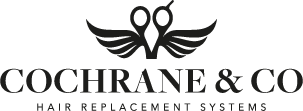Can Head Lice Cause Hair Loss?
Head lice are types of insects known as parasites meaning they need human blood to live. They typically stay close to the scalp, behind the ears, and are sometimes found on eyebrows and eyelashes.
Female adults can lay six to eight eggs or nits daily on the scalp – these are tiny and stick to the hair shaft – usually hatching within nine days, leaving behind a clear shell. The nymphs feed on the blood from the scalp, reaching adulthood with clawed legs that latch tightly to hair.
Can untreated head lice cause hair loss? Read on…
Spreading Head Lice
The transmission of head lice to other people is by direct contact as the lice can’t fly or jump. Lice may be spread via brushes and combs, pillows and towels, or hats and hair accessories. The risk of transmission is higher among youngsters who play and go to school together.
Lice don’t carry or transmit disease from one person to another. And it’s a misconception that head lice happen to dirty people – they prefer clean hair and scalps! Hair doesn’t need to be long to foster a lice infestation as the eggs are so small, they don’t need a long strand of hair to survive.
Lice can’t live on a completely bald head but shaving the head down to the skin is an extreme measure. Keeping lice under control takes hard work and diligence, and taking immediate action will stop the lice from spreading to others.
Signs of Head Lice
There are several symptoms of head lice presenting on the scalp and these include:
- An itchy scalp caused by the saliva of the lice
- Live lice on the scalp
- Nits on hair shafts
- Small red bumps on the scalp, neck, and shoulders
If you or your child develops an itchy scalp from a head lice infestation the skin may break and cause complications such as an infection. The dangers of sores that are scratched may result in infecting an opening in the skin which will need treatment.
Before you begin any treatment it’s best to consult with your doctor as nits can be mistaken for scabs, dirt, dandruff, or other dead hair tissue issues.
Head Lice Treatment
There are several treatment options including shampoos and creams, and combing of hair with a comb designed to remove lice and nits. Unfortunately, none of these is 100% effective, as lice develop resistance to many products. In severe cases, prescription medication may be necessary.
Hair loss after lice treatment is very rare and may be due to prescription-strength shampoos containing harsh chemicals that can cause a dry scalp. Dangerous myths that relate to the question of can lice cause hair loss can be answered by stating that lice don’t cause any serious health issues or long-term effects – other than discomfort at the time of infestation, and anxiety about having head lice.
If you wear a hair system and may have come into contact with someone with head lice call and speak to a hair replacement specialist from Cochrane & Co to discuss your concerns and they will give you advice on keeping your hair system and your scalp healthy.
Head Lice Prevention
The prevention of head lice can be curbed by:
- Thoroughly washing all bedding, hairbrushes and other items that have been in direct contact with the person treated for head lice on a high-temperature programme
- Not sharing clothing and accessories
- Storing items that can’t be washed in airtight containers for several weeks to ensure the lice and nits are eliminated
- Carefully vacuuming carpeted floors and upholstery
- Soaking combs and brushes

